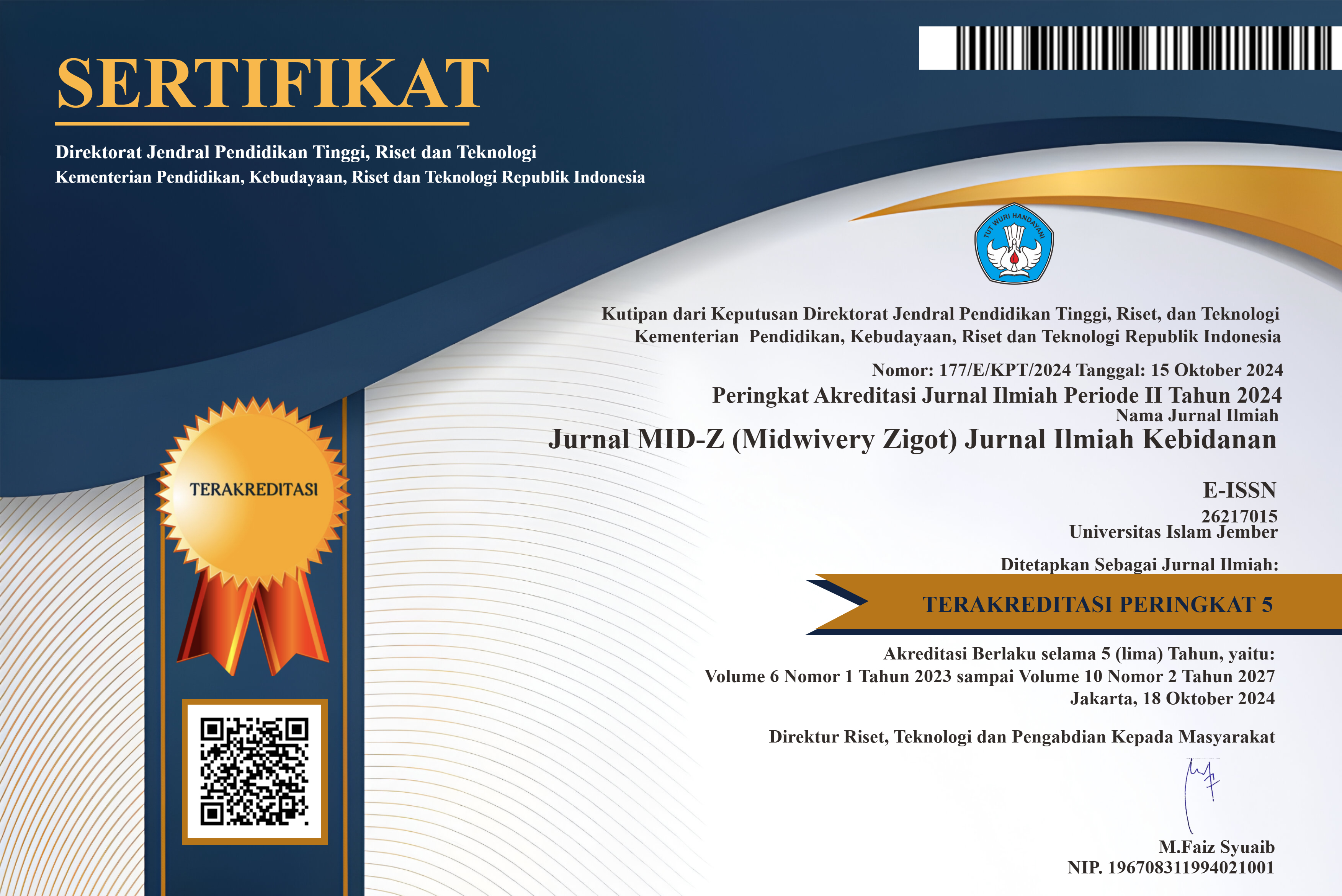Hubungan Pola Asuh Orang Tua dengan Perkembangan Kognitif Anak Usia 3-5 Tahun di Tk Al-Qodiri Kabupaten Jember
Abstract
Various factors can influence parents in giving parenting to children, including temperament, biological characteristics, education level, family stress and influence from outside the family. Parenting parenting at home is highly correlated with the socialization behaviors and abilities shown by children with surrounding surroundings. Pre-school children begin to recognize parenting patterns as well, and it is important between building interpersonal relationships of children and affecting the child's behavioral response to child growth especially cognitive development of children. The purpose of this study was to determine the relationship of parenting parenting to the cognitive development of 3-5 years at TK Al-Qodiri Jember. The method used in this research is observational analytic research with cross sectional study approach. From result of test by using Chi-Square Tests test get p value <0,05 that is p = 0,046 meaning that there is relation of parenting pattern to cognitive development of age children 3-5 years in TK Al-Qodiri Jember. Suggestions that can be conveyed to the respondents to provide input to develop a stimulus and the appropriate environment in the development of children's cognitive intelligence. With the implementation of an activity on a regular basis and the provision of supporting facilities.Downloads
Published
How to Cite
Issue
Section
License
Copyright (c) 2018 Jurnal MID-Z (Midwivery Zigot) Jurnal Ilmiah Kebidanan

This work is licensed under a Creative Commons Attribution-ShareAlike 4.0 International License.
Jurnal Mid-Z (Midwifery Zigot) Jurnal Ilmiah Kebidanan memberikan akses terbuka terhadap siapapun agar informasi dan temuan pada artikel tersebut bermanfaat bagi semua orang. Semua konten artikel Jurnal Mid-Z (Midwifery Zigot) Jurnal Ilmiah Kebidanan dapat diunduh secara gratis tanpa dipungut biaya sesuai dengan lisensi creative commons yang digunakan.

Jurnal Mid-Z is licensed under a Creative Commons Attribution 4.0 International License






















